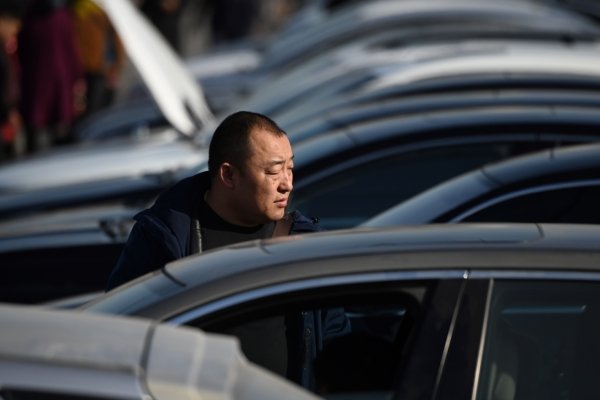Recentlty, new OBD car inspection regulations have been implemented in multiple areas in mainland China, leading to a large number of vehicles failing inspection and being forced to be scrapped, with car owners exclaiming “the sky has fallen for fuel-powered cars.” Lawyers argue that this constitutes the government arbitrarily changing contracts, harming the interests of ordinary citizens.
OBD stands for On-Board Diagnostics, a system that continuously monitors the operation of the engine to check if the vehicle’s emissions exceed the standard and reads all the fault codes in the vehicle. Car owners have complained that if there is a fault code detected during OBD inspection, the vehicle will fail the annual inspection, and after three failures, the vehicle will be forced to be scrapped. Many car owners lamented that they cannot afford to buy a new car in the current economic downturn, and the authorities pushing for consumption are pushing ordinary citizens onto a dead end.
The first batch of car owners whose vehicles failed OBD inspection have already emerged. Recently, a car owner detailed the process of scrapping his old car. On October 31, he took his car for inspection, and the emissions were 0.03 above the standard. He was advised to go to a designated “M station” for repair, where he spent 280 yuan on replacing an oxygen sensor. After returning to the inspection station for a retest, the OBD system detected 4 errors. Despite making multiple trips and spending time, the inspection was not successful, resulting in the car being forcibly scrapped.
Netizens expressed their frustration, saying “the used car trading market is basically ruined,” “forcing ordinary people to spend money to buy new cars to boost domestic consumption,” “formalism has infiltrated the automotive industry,” and “if there are issues with the car, the car manufacturers should be consulted.” Some believe this is a ploy to push people to buy electric cars.
Regarding the designated “M station,” which refers to car emissions control stations, netizens humorously refer to them as “Money stations,” implying they are profit-seeking centers. They feel pressured to buy products and services they may not need to pass the inspection.
Some have taken to making videos pleading for leniency, illustrating the difficulties they face due to the changing regulations affecting their ability to own and maintain vehicles. They feel marginalized and overwhelmed by the continual challenges imposed on them.
According to legal experts, the mandatory OBD inspections are a typical means of exploiting the public for financial gain. The government’s push for faster vehicle obsolescence in a time of economic stagnation is seen as a tactic to bolster car sales and manipulate consumer behavior, ultimately infringing on citizens’ rights.
While some official sources claim that there have been no new strict regulations regarding car inspections this year, the media coverage highlighting falsified emission tests and rigorous inspection processes creates confusion and anxiety among car owners.
Overall, the OBD inspection process has sparked controversy and debate, with many questioning the motives behind these stringent measures. Car owners are being forced to adapt to new regulations and compliance standards, which have significant financial implications and threaten their ability to maintain their vehicles.
In conclusion, the enforcement of OBD car inspections has become a contentious issue in China, revealing underlying concerns about government overreach, consumer rights, and economic pressures on the populace. As the situation unfolds, stakeholders are left grappling with the repercussions of these new regulations and the impact on their daily lives.

